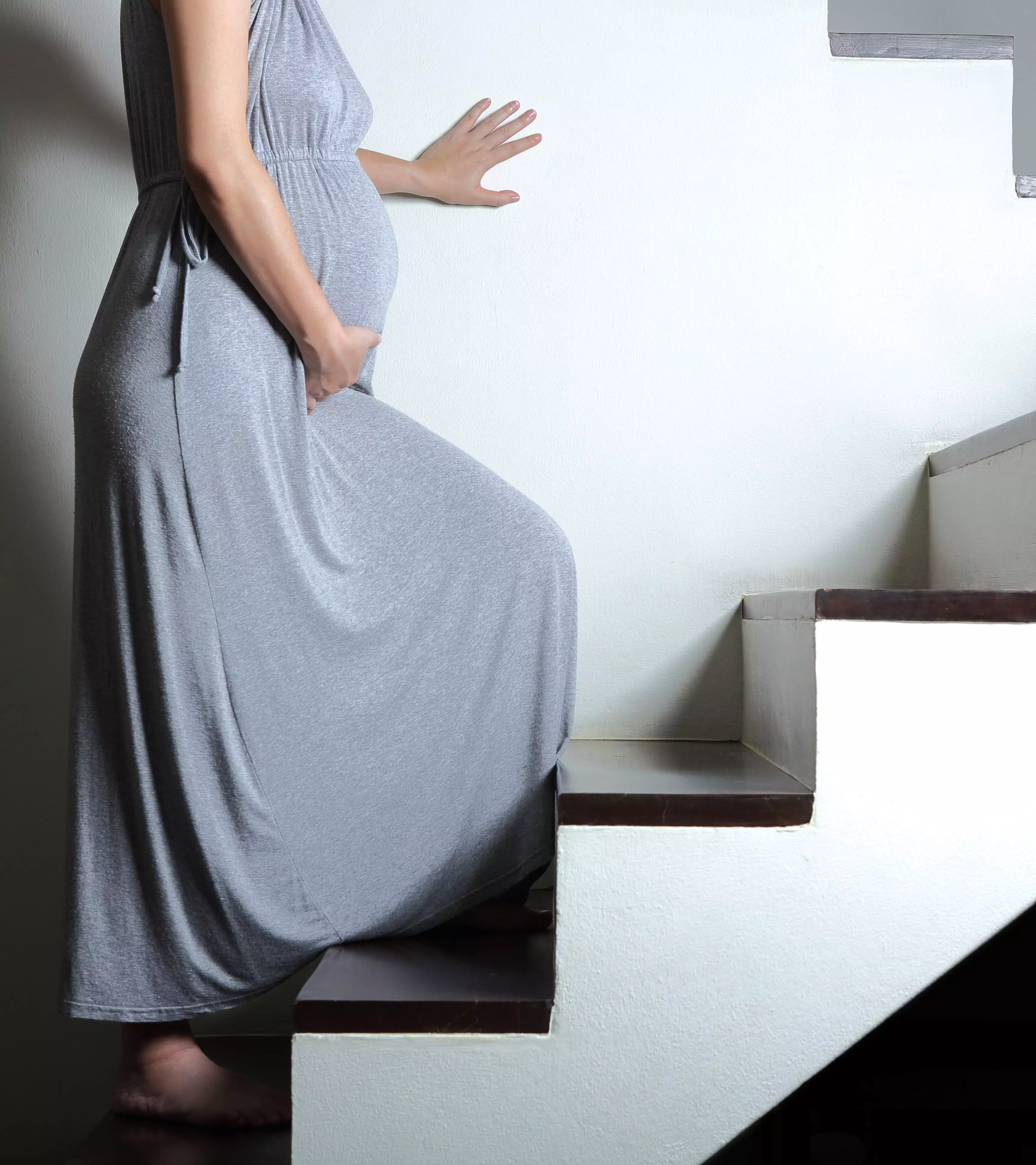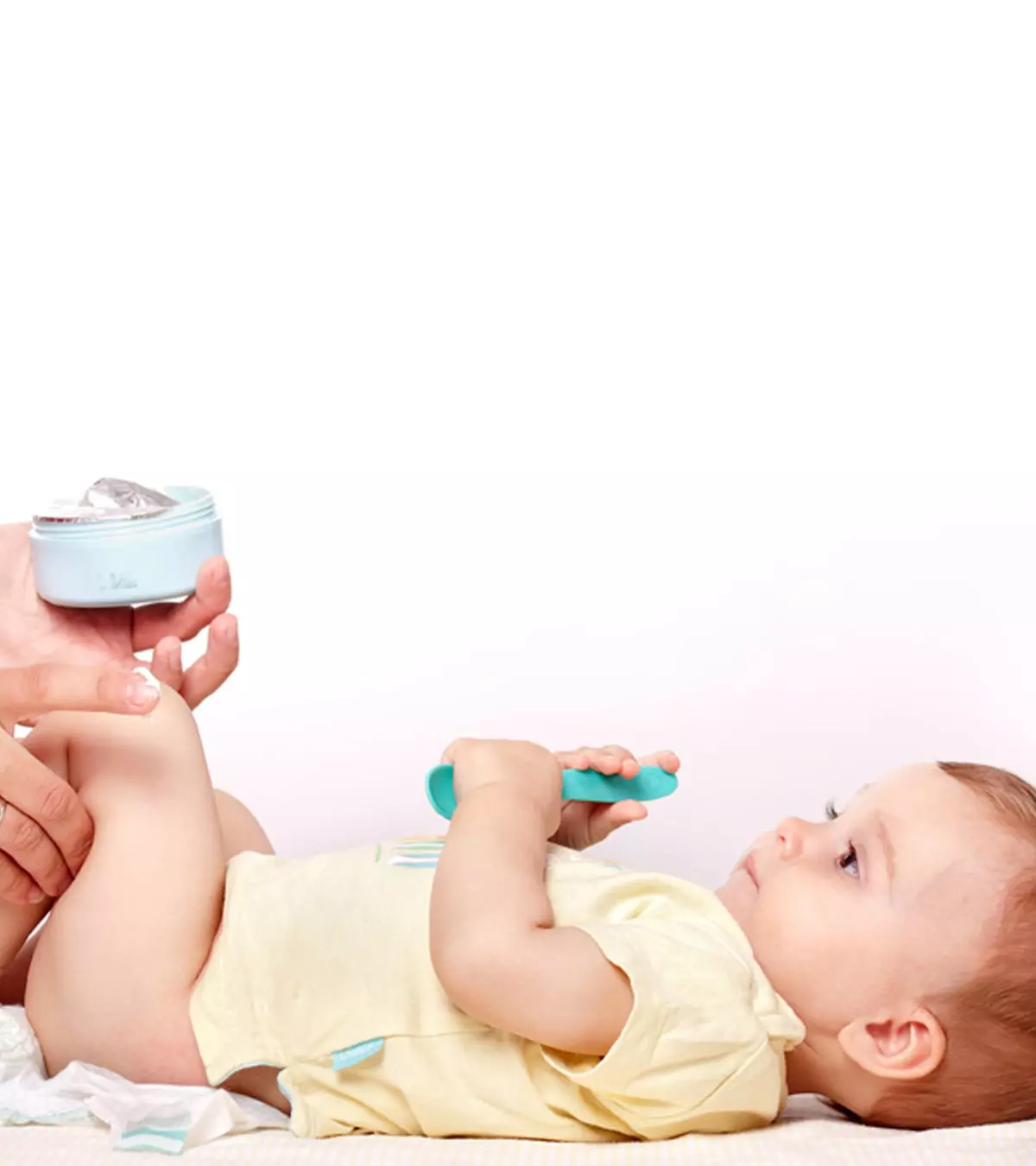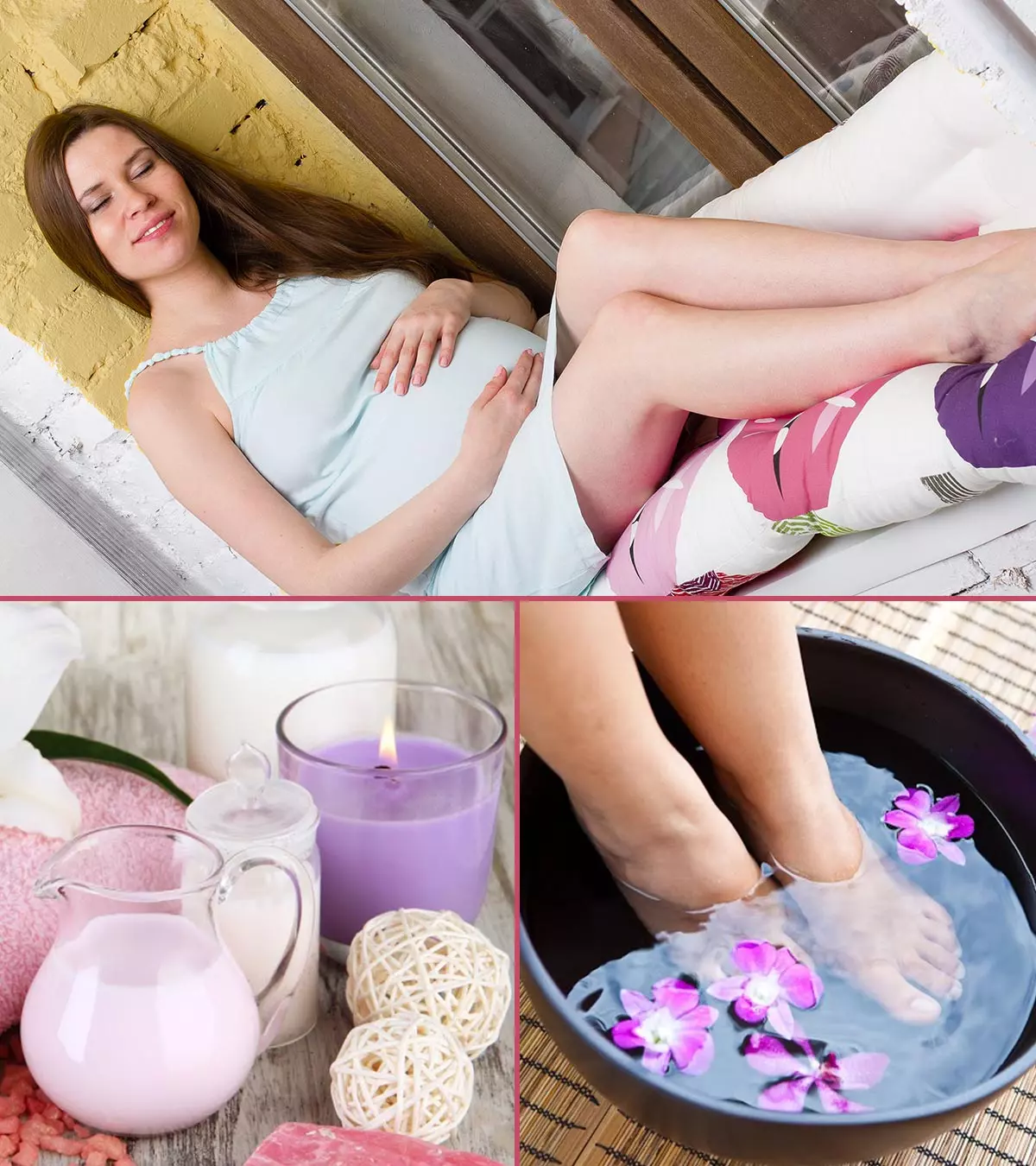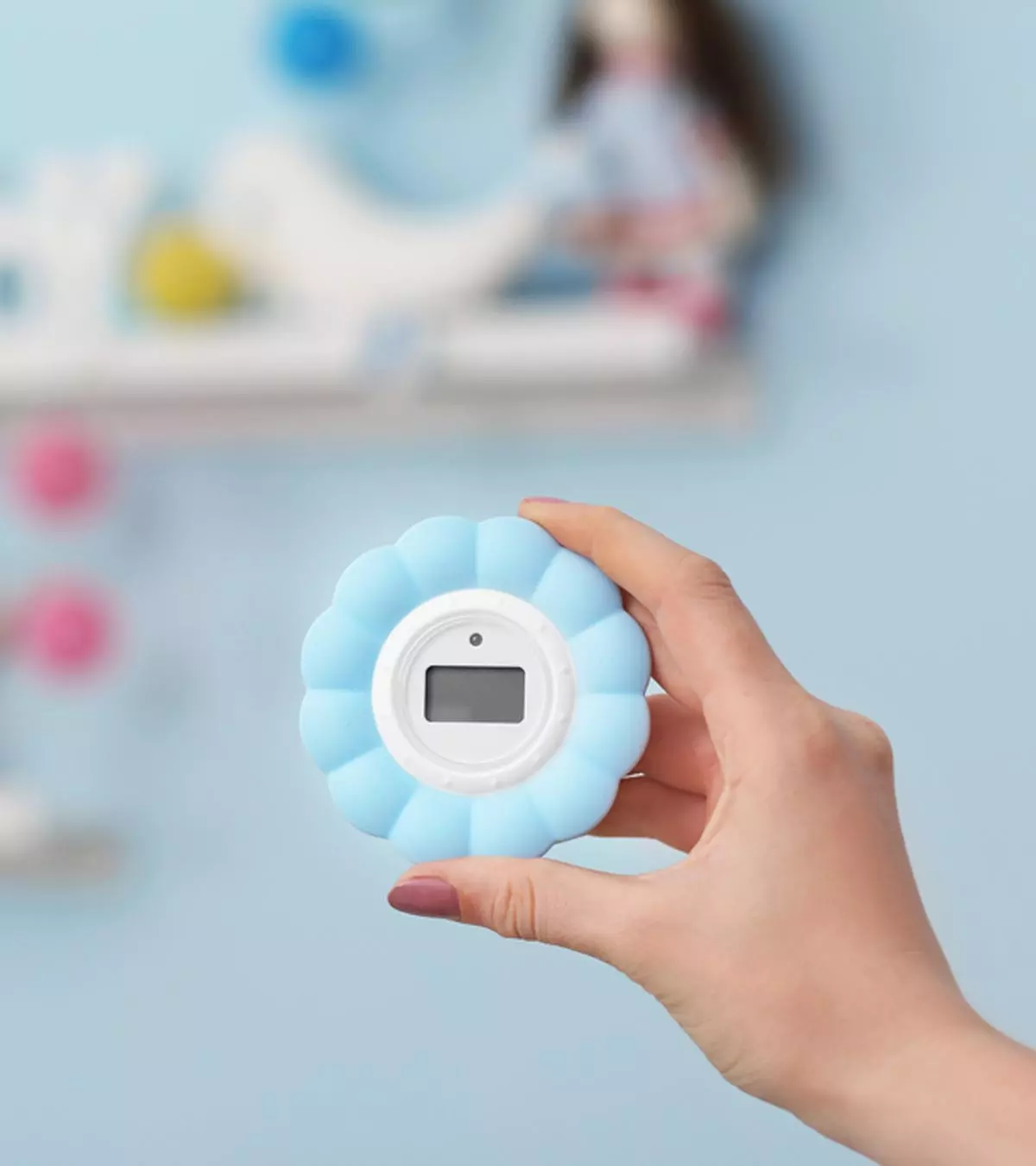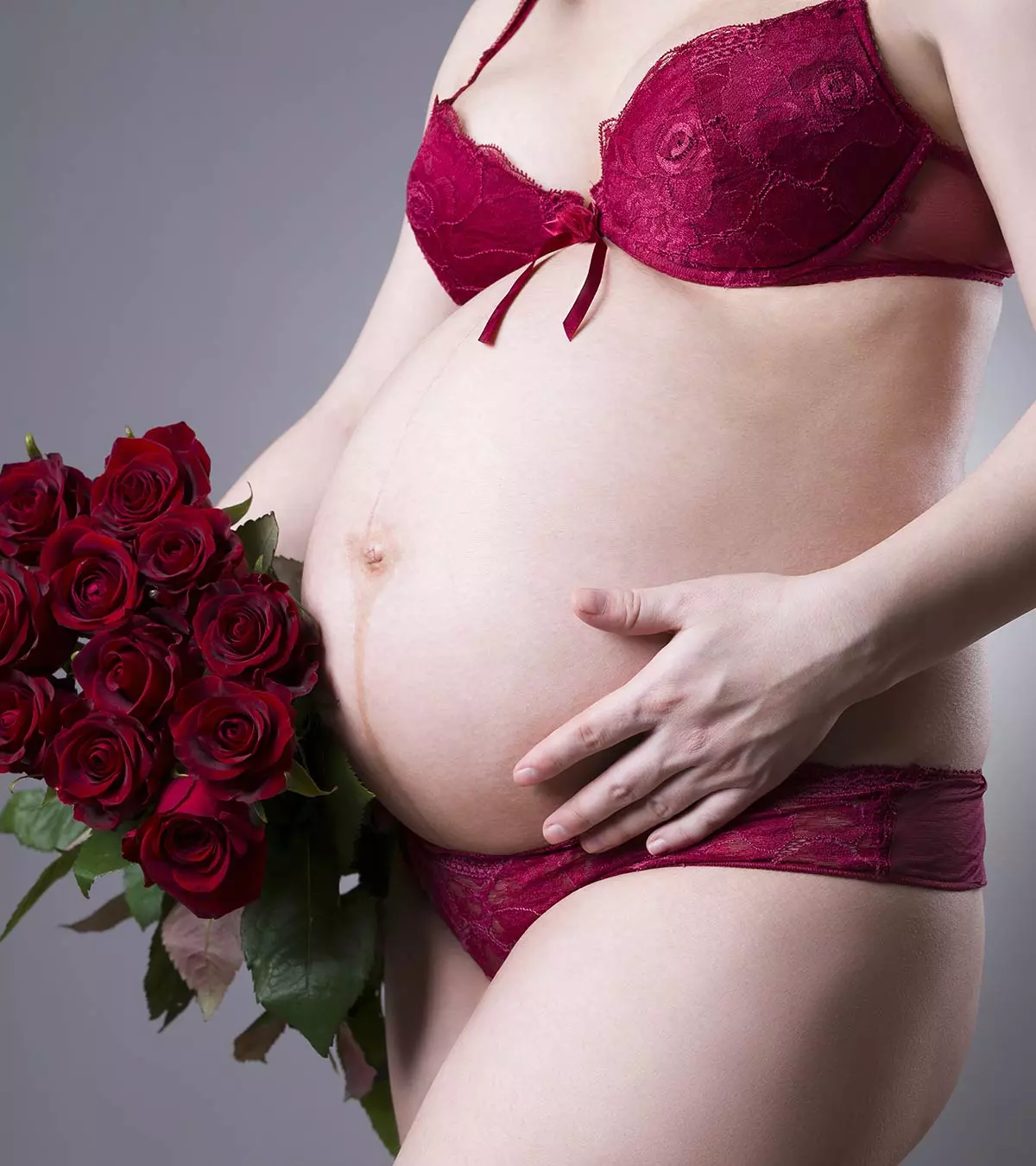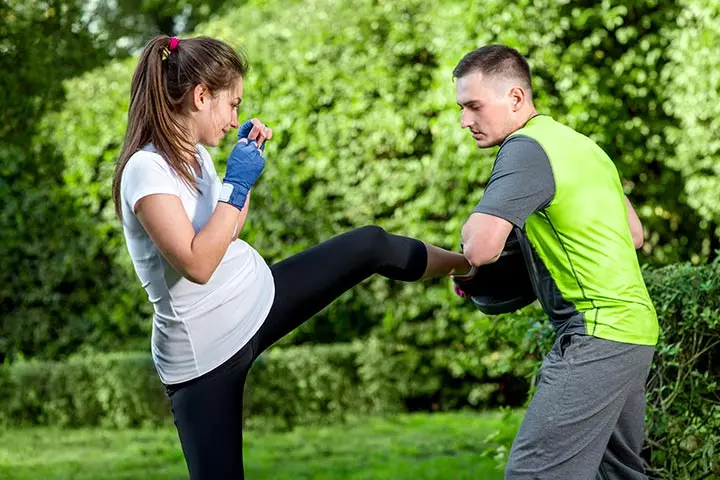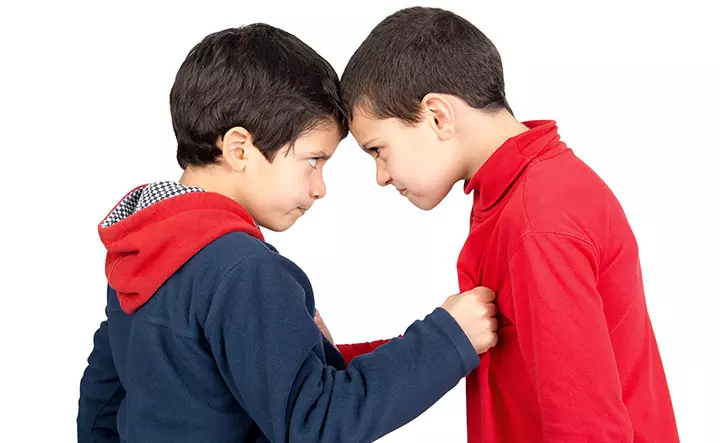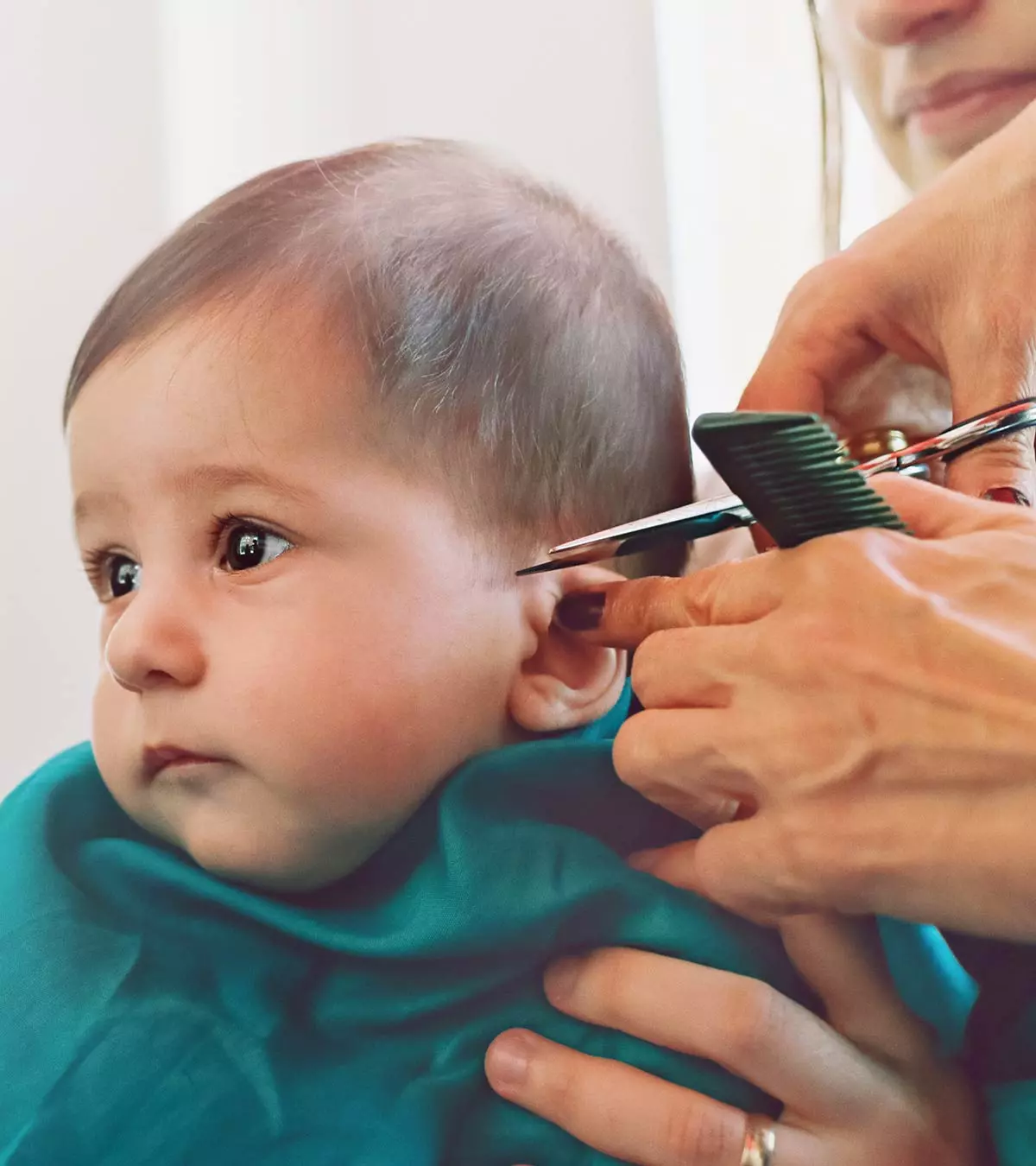
Most parents are enthusiastic about giving their baby’s first haircut. But babies could be twitchy and restless during a haircut. Also, they may feel anxious during a haircut. Therefore, baby hair cutting and trimming needs training and a lot of patience. It is important as babies would not sit still while running a pair of sharp scissors or buzzing trimmers on their heads. Moreover, if the hairdresser is not well-experienced, it could increase the risk of injuries in babies.
This post could help you with all the details regarding a baby’s haircut. Also included are a few tips to make this experience a safe and delightful one.
Key Pointers
- An ideal time to give babies their first haircut is after their first birthday.
- If your baby’s hair grows fast, you may also trim the hair after seven months.
- Deciding whether to cut the hair dry or damp depends on your baby’s comfort.
- Having the tools in one place, ensuring your child is happy, playing some music, and other important steps can make the process easy and enjoyable.
When Can Your Baby Have Their First Hair Cut?
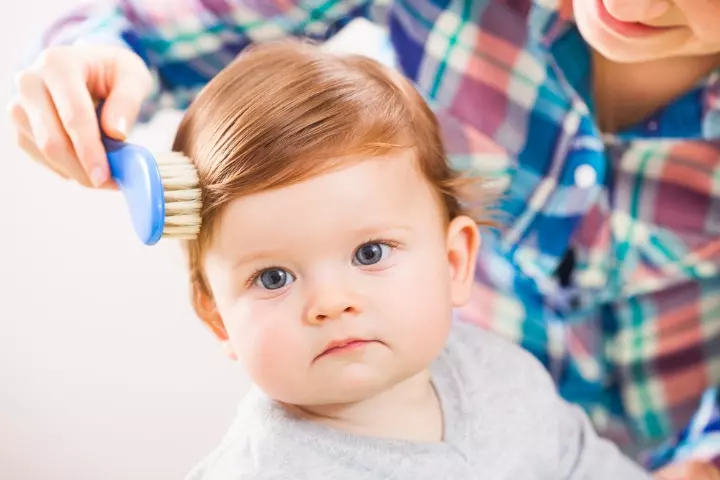
Image: Shutterstock
It depends on how much hair your infant or baby has on their scalp. Most babies lose their hair in the first few months after birth, and it is replaced by permanent hair (1). Since this process takes a while, it is ideal you give your child their first haircut after their first birthday.
Jessie, a mother, details her first experience getting a haircut for her son Datu, her one-year-old son. She recalls, “While waiting for our turn, Datu was oblivious to the other wailing child. He sat in the (car) barber’s chair and played with the steering wheel. He very rarely cries and has almost zero stranger anxiety, so I was confident that there would be no drama here. Boy, was I wrong. He started crying as soon as the barber started on his razor. I ended up having to carry him for him to stop crying, and I got his hair all over me. I was kind of emotional while my son was getting a haircut. He felt like a different kid to me. As if he suddenly grew up (ⅰ).”
If your baby’s hair grows too fast and they find it irritating, you may trim their hair after they complete seven months to give them a cute and adorable look It is the age by which they can sit without support, so you can conveniently trim their hair by placing them in a high chair (2).
Is It Possible To Do It Yourself?
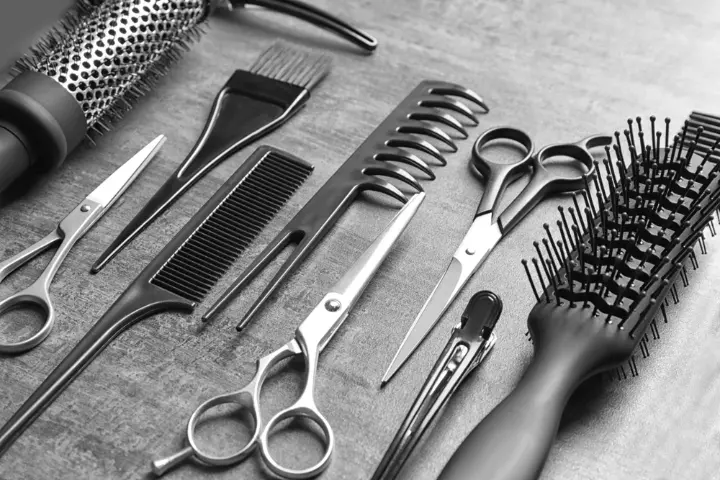
Image: Shutterstock
Yes, you can cut your baby’s hair yourself. You need to be patient and gentle, while the baby must be relaxed and not fussy. Ensure a calm environment, and have someone assist by holding or entertaining your baby during the haircut. You also need to keep all the haircutting supplies, such as a comb or brush and cutting implements handy, so it becomes easy for you to get the work done. Also, do not stress too much about the nuances since your baby does not need a fashionable haircut.
 Quick tip
Quick tipShould You Cut Your Baby’s Hair Dry Or Damp?
It depends on how your baby feels about it. Some babies feel irritated when having a haircut on dry hair. It’s safe to spray some water to make hair damp before you begin cutting them. You can do so by spraying water on your hands first and then gently running your fingers over the baby’s scalp.
Simple Steps To Cut Your Baby’s Hair With Scissors
You can try the following steps if you intend to cut your baby’s hair with a pair of scissors.
1. Collect the required tools in one place
Before you start cutting your baby’s hair, ensure that whatever you need is in one place. Your little one may get restless if you keep running to get your tools mid-haircut. Here are some tools you might require for the haircut.
- Old cloth to cover your child’s clothes
- A towel to wipe hair on your child’s neck
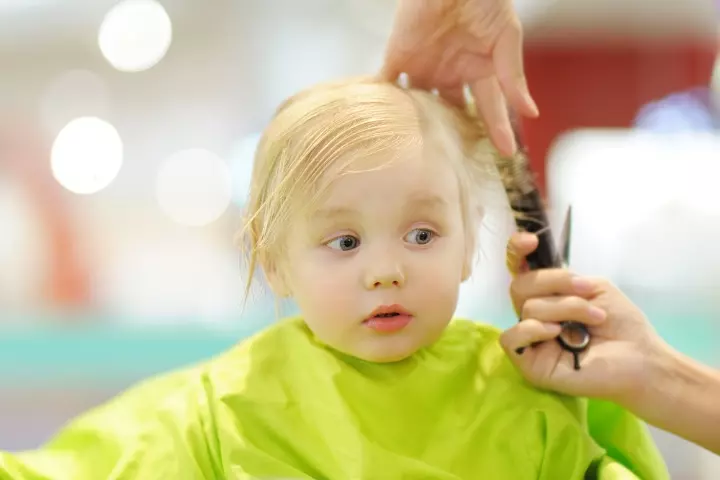
Image: Shutterstock
- A thin toothed comb
- A pair of small scissors
- A spray bottle
- Some spare papers or newspaper to collect the hair
- A bag or envelope to dispose of the hair
Additionally, you can also keep your baby’s favorite toy handy, so they can play with it while you cut their hair. You can also take the help of a family member so that your baby is distracted.
2. Ensure the baby is happy
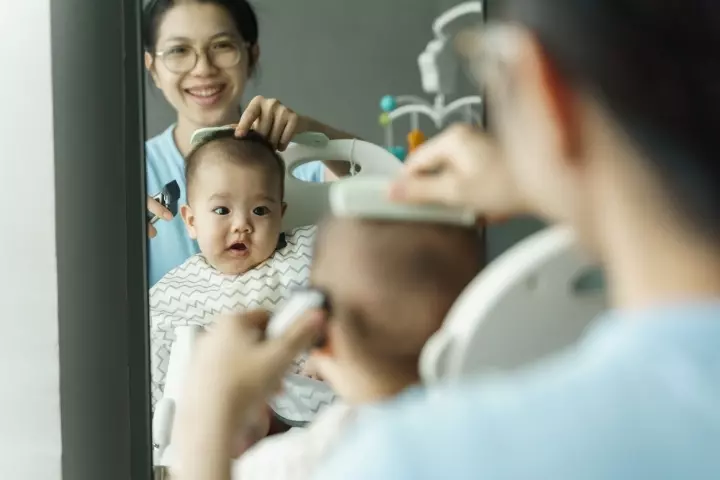
Image: Shutterstock
Your baby needs to be happy and in a good mood so that they sit steady in one place. Ensure that your baby is well-fed, not sleepy, and not in a cranky mood. If your baby has a specific time when they play or are generally calm, opt for that time to cut their hair.
3. Play some music
Try to entertain your baby before you start cutting their hair. Play some music and dance with them in your arms. Talk to them. Keep them engaged. Show them the comb and the towel you will be using. You can even give them a sweet treat that will make them happy instantly.
4. Start slowly and cautiously
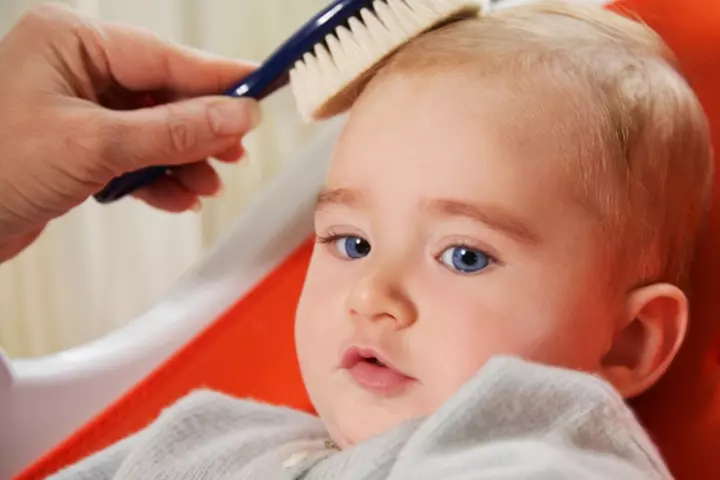
Image: Shutterstock
Once you have them gladly on their seat, preferably a high chair, with a cloth neatly placed around their torso, you can follow these steps.
- Start by spraying some water on their head to dampen their hair. If your baby does not like it, dampen your finger and run them through the baby’s hair. If the hair is not dense, you may cut it dry.
- Gently comb their hair, take a small portion between your fingers, and start snipping little by little. Cut as close to the fingers as possible.
- The first few times, stop and check if your child reacts to the snipping sound of the scissors. If they look fine, go ahead and continue cutting in small sections. Make small horizontal cuts instead of cutting a large chunk at a time.
- Once the hair at the back is trimmed, do the sides in the same way. After every few snips, check for hair on your child’s face and wipe it off, so they do not feel irritated.
- After the sides, you can start trimming the crown area using the same technique. If you are not sure of how it might look, do not cut too much. Trim the bare minimum to ensure the hair does not fall on your child’s eyes.
Do not worry if the haircut does not look perfect. It takes practice to get it right eventually.
5. Clear the space
Once you are done, wipe off the hair that may have stuck around the baby’s neck and shoulders and take off the old cloth slowly. Clear out the papers you placed on the floor and dispose of them in an envelope or bag. Give your baby a nice warm bath to clear off any hair stuck to your child’s body.
 Quick tip
Quick tipSimple Steps To Cut Your Baby’s Hair With Clippers
Alternatively, you can also trim your child’s hair with the help of electric hair clippers. You can follow the same steps as mentioned above, except for step number 4. Here are a couple of additional steps to keep in mind when cutting hair with a clipper.
- Attach a longer guard to the clipper or razor to keep your baby’s skin safe. It may not trim to the shortest hair possible but will be a lot safer to use.
- Go over one section multiple times to ensure you have cut the hair evenly. For the section near the ears, use a shorter guard.
If both these methods seem difficult to you, book an appointment with a salon specializing in cutting babies’ hair. There are chances that your child might cry, but these professionals must have probably dealt with it before, so they would know ways to tackle such situations. Also, you can help distract your baby and entertain them while the hairstylist does their job. Praise your baby for staying calm and brave during the haircut. Afterward, give them a small reward, like a sticker or favorite snack, to make the experience positive and fun.
Frequently Asked Questions
1. Does shaving a baby’s head make their hair grow thicker?
Many believe that shaving the baby’s head helps stimulate hair growth and thickens hair strands. However, there is no scientific research to back this belief. Hair experts say that the thickness, length, and quality of hair is decided by genetics, and shaving of the head does not contribute to its growth in any way (3). Shaving should only be done by an experienced person or a professional, using proper equipment. And any cuts should be hygienically handled, treated using first aid and if need be, shown to a doctor.
2. Any tips for a baby’s hair care after a haircut?
After you have cut your baby’s hair, check for any cuts or bruises. Apply a baby-safe skin antiseptic liquid over their head if required. Then, give them a warm bath. Later, you may apply hair oil that moisturizes the scalp and promotes baby hair growth.
3. How should I shave my baby’s head if they have cradle cap?
Cradle cap is a skin condition that causes your baby’s scalp to become excessively dry and flaky. In such a case, avoid shaving your child’s hair because shaving will only make their scalp dry. If your baby has cradle cap, consult a doctor before cutting or trimming their hair. Medicated skin oils and creams could help tackle the condition effectively.
4. Why is cutting a baby’s hair important?
Cutting a baby’s hair is completely optional. In some cultures, babies get their first haircut for religious purposes. Some parents believe that cutting hair will lead to thicker hair growth, while a few others are concerned about the length of their baby’s hair or are looking for a viable solution because the baby pulls their own hair. Cutting baby’s hair will introduce them to new sensory experiences that may serve them in later years and give them a fresh look. It is also considered one of the baby’s most important milestones.
5. How long will it take for baby hair to regrow after the first haircut?
The growth rate of baby hair after a haircut depends on genetics (4). However, most parents observe that hair generally starts growing in a month.
6. How can I tell if my baby is ready for their first haircut?
There are no rules to decide if a baby is ready for their first haircut. In general, if your baby was born with a headful of hair, they will likely need a haircut sooner than a baby who was born bald or with sparse hair. If your baby’s hair is getting into their eyes or causing other issues, you can cut them.
7. What is a baby’s first haircut called?
In Christianity, a baby’s first haircut is called tonsure. In Islam, it is called the Aqiqah ceremony. In Judaism, it is called upsherenish, upsherin in Yiddish, and halaqah in Hebrew. In Hinduism, it is called mundan. In Mongolia, the ceremony of cutting a baby’s first hair is called Daah’ Urgeeh or Sevleg Urgeeh. In Malaysia, a baby’s first hair is cut in a ceremony named Cukur Jambul.
8. How do I prepare my baby for their first haircut?
Consider talking about the haircut a few days before to make your baby feel prepared and confident. Try playing pretend haircut games or reading storybooks about haircuts to help your baby feel more comfortable and familiar with the process.
9. What mistakes should I avoid during my baby’s first haircut?
Avoid rushing or cutting too much hair at once to ensure you get the desired haircut with minimal mistakes. Also, it’s best not to cut when your baby is tired or cranky.
While you are giving your baby their first haircut, they are expected to be restless and might cry for a while as well. However, you must remain patient throughout the process. You can cut your baby’s hair yourself if you are comfortable and confident enough to do it. But you need to ensure that you have all the supplies ready to make the process easier. You might also ask your partner for some help, if needed, to manage the baby. Read through the steps in this post and try the process if you feel that you can do it.
Infographic: How To Safely Cut A Baby’s Hair At Home Using Scissors
While many cultures celebrate the baby’s first haircut, it is more of a careful consideration for many other parents. There are many concerns a parent may have when considering a haircut, such as the safety of scissors and cleanliness. Therefore, our infographic presents a stepwise guide on cutting a baby’s hair at home with scissors.

Illustration: Momjunction Design Team
Illustration: Baby&039s First Haircut: Step by Step Process To Make It Easy
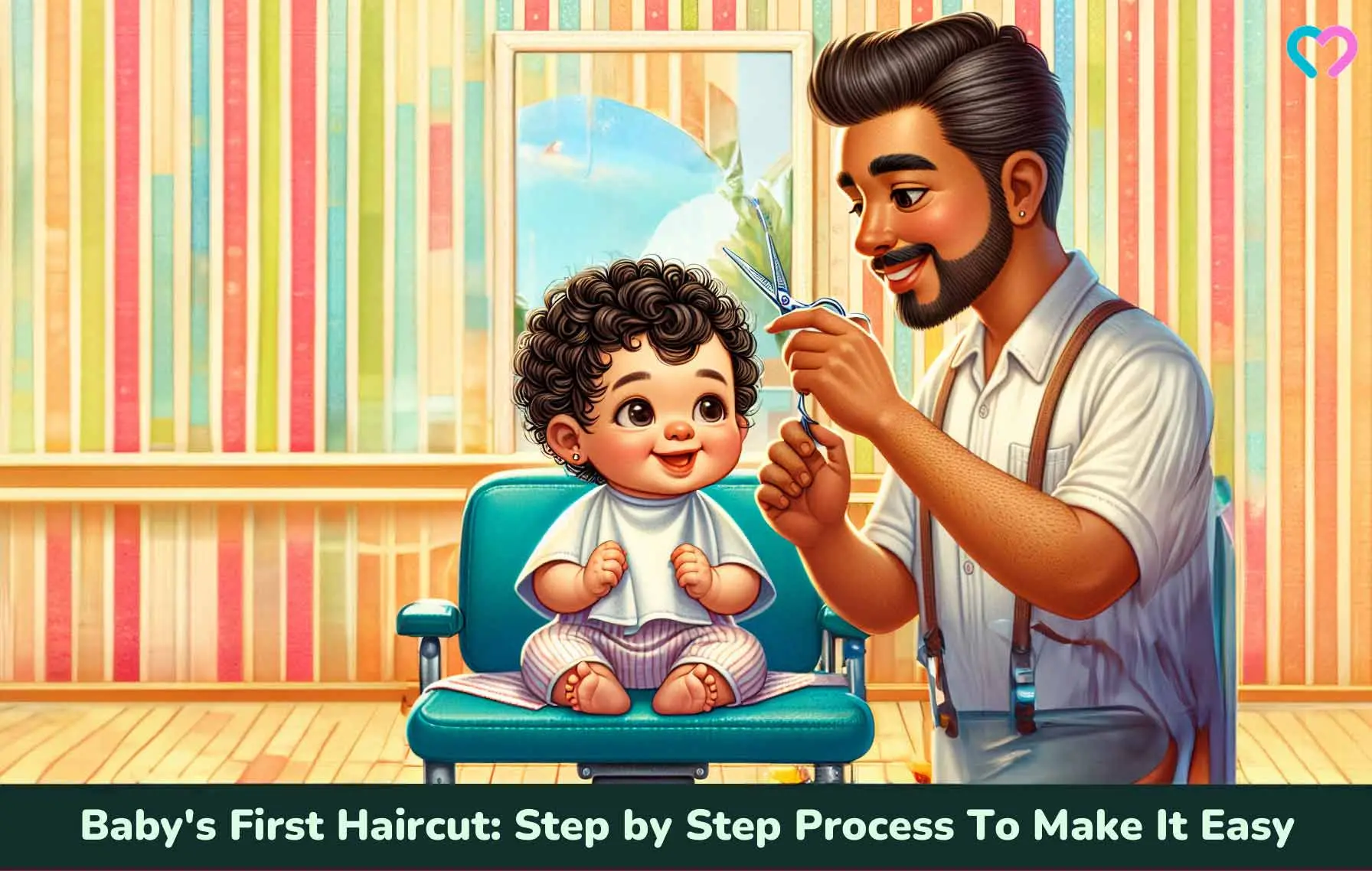
Image: Dall·E/MomJunction Design Team
Personal Experience: Source
MomJunction articles include first-hand experiences to provide you with better insights through real-life narratives. Here are the sources of personal accounts referenced in this article.
ⅰ. Of first haircuts and traditions;https://storiesofmrss.blogspot.com/2014/02/of-first-haircuts-and-traditions.html
References
1. Hair Loss; Seattle Children’s Hospital
2. Important Milestones: Your Baby By Six Months; CDC
3. Shaving head – Hair grows back thicker and healthier?; Columbia University
4. DEBUNKING OLD WIVES’ TALES: BABY’S HAIR; University of Utah
Community Experiences
Join the conversation and become a part of our nurturing community! Share your stories, experiences, and insights to connect with fellow parents.
Read full bio of Pranjul Tandon
Read full bio of Dr. Ritika Shah
Read full bio of Rohit Garoo
Read full bio of Ghazia Shah






